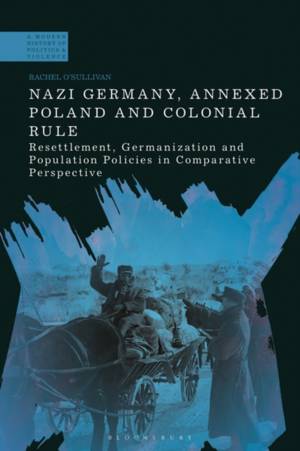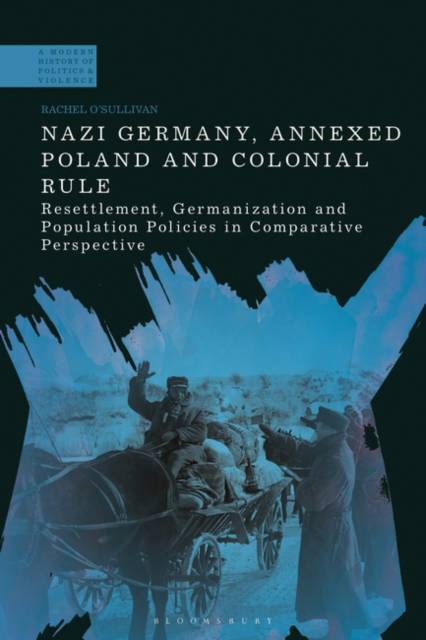
- Afhalen na 1 uur in een winkel met voorraad
- Gratis thuislevering in België vanaf € 30
- Ruim aanbod met 7 miljoen producten
- Afhalen na 1 uur in een winkel met voorraad
- Gratis thuislevering in België vanaf € 30
- Ruim aanbod met 7 miljoen producten
Zoeken
Nazi Germany, Annexed Poland and Colonial Rule
Resettlement, Germanization and Population Policies in Comparative Perspective
Rachel O'Sullivan
€ 203,95
+ 407 punten
Uitvoering
Omschrijving
This book examines Nazi Germany's expansion, population management and establishment of a racially stratified society within the Reichsgaue (Reich Districts) of Wartheland and Danzig-West Prussia in annexed Poland (1939-1945) through a colonial lens. The topic of the Holocaust has thus far dominated the scholarly debate on the relevance of colonialism for our understanding of the Nazi regime. However, as opposed to solely concentrating on violence to investigate whether the Holocaust can be located within wider colonial frameworks, Rachel O'Sullivan utilizes a broader approach by investigating other aspects, such as discourses and fantasies related to expansion, settlement, 'civilising missions' and Germanisation, which were also intrinsic to Nazi Germany's rule in Poland.
The resettlement of the ethnic Germans-individuals of German descent who lived in Eastern Europe until the outbreak of the Second World War-forms a main focal point for this study's analysis and investigation of colonial comparisons. The ethnic German resettlement in the Reichsgaue laid the foundations for the establishment and enforcement of German society and culture, while simultaneously intensifying the efforts to control Poles and remove Jews. Through this case study, O'Sullivan explores Nazi Germany's dual usage of inclusionary policies, which attempted to culturally and linguistically integrate ethnic Germans and certain Poles into German society, and the contrasting exclusionary policies, which sought to rid annexed Poland of 'undesirable' population groups through segregation, deportation and murder. The book compares these policies - and the tactics used to implement them - to colonial and settler colonial methods of assimilation, subjugation and violence.
The resettlement of the ethnic Germans-individuals of German descent who lived in Eastern Europe until the outbreak of the Second World War-forms a main focal point for this study's analysis and investigation of colonial comparisons. The ethnic German resettlement in the Reichsgaue laid the foundations for the establishment and enforcement of German society and culture, while simultaneously intensifying the efforts to control Poles and remove Jews. Through this case study, O'Sullivan explores Nazi Germany's dual usage of inclusionary policies, which attempted to culturally and linguistically integrate ethnic Germans and certain Poles into German society, and the contrasting exclusionary policies, which sought to rid annexed Poland of 'undesirable' population groups through segregation, deportation and murder. The book compares these policies - and the tactics used to implement them - to colonial and settler colonial methods of assimilation, subjugation and violence.
Specificaties
Betrokkenen
- Auteur(s):
- Uitgeverij:
Inhoud
- Aantal bladzijden:
- 264
- Taal:
- Engels
- Reeks:
Eigenschappen
- Productcode (EAN):
- 9781350377226
- Verschijningsdatum:
- 16/11/2023
- Uitvoering:
- Hardcover
- Formaat:
- Genaaid
- Afmetingen:
- 156 mm x 234 mm
- Gewicht:
- 548 g

Alleen bij Standaard Boekhandel
+ 407 punten op je klantenkaart van Standaard Boekhandel
Beoordelingen
We publiceren alleen reviews die voldoen aan de voorwaarden voor reviews. Bekijk onze voorwaarden voor reviews.








